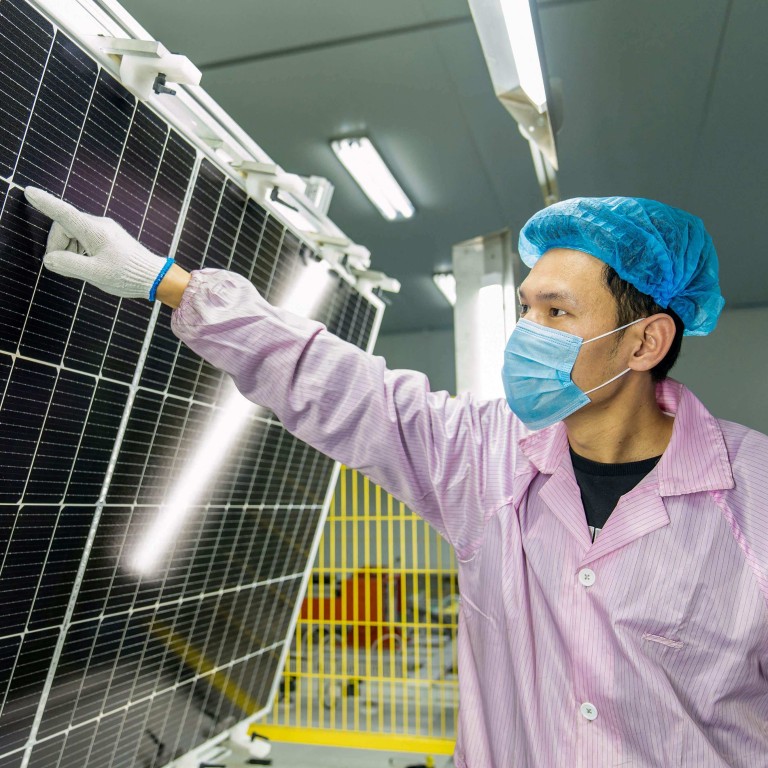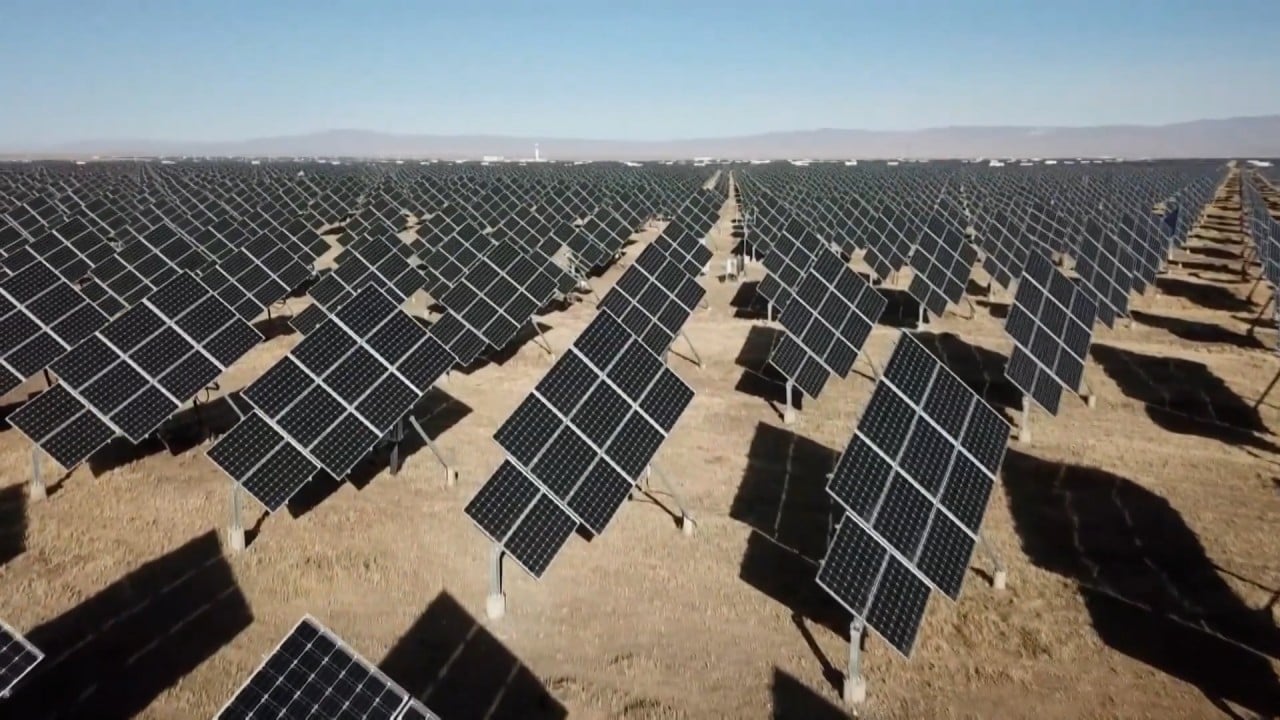
Climate Change: China’s GCL Poly Energy ramps up production of cheaper, more efficient solar panel materials
- The firm is readying plans to increase its capacity to produce so-called granular silicon products next month
- The reduction in the carbon footprint of the production process is equivalent to planting 2.2 million trees per year, GCL claims
The firm is on track to increase by 50 per cent its capacity to produce so-called granular silicon products next month, after installing its first commercial production lines recently, capable of churning out 20,000 tonnes annually of the raw material used in solar panels.
The project had begun to show its advantages, generating a bigger profit margin despite higher input prices, it added. Granular silicon accounted for 18 per cent of GCL’s total production last year.
The company, which is based in Jiangsu province, expects to post a 5 billion yuan (US$790 million) net profit for 2021, a major turnaround from losses of 5.7 billion yuan a year earlier. Its shares closed 2.4 per cent higher on Monday at HK$2.53.
Prices of polysilicon, GCL’s mainstay product, are expected to hover at about 200 to 240 yuan per kilogram in the near term amid tight supply, Nomura analyst Donnie Teng wrote in a note on Friday. The price has more than quadrupled since June 2020 to as much as 280 yuan late last year, before easing off this month.
Everbright Securities projected GCL’s earnings would climb to 6.3 billion yuan this year and 7 billion yuan in 2023. Western Securities was more bullish with its forecasts for 7 billion yuan and 7.4 billion yuan, respectively.
China, the world’ largest emitter of carbon dioxide, aims to more than double its capacity to generate power from renewable sources to at least 1,200 gigawatts by 2030.
Along with reaching peak coal consumption by 2025, Beijing aims to cap carbon emissions by 2030 and achieve net-zero emission by 2060.
After a decade of research, GCL said it has commercialised granular silicon using a process that has a carbon footprint some 74 per cent lower than conventional methods.
The reduction is equivalent to planting 2.2 million trees per year, it claims. In October, GCL became the first company to receive certification for its granular silicon carbon footprint from ADEME, the French Environment and Energy Management Agency.
The lower energy-intensity could trim production costs by 30 per cent, Everbright Securities estimated in November.
The advantage of granular silicon products will become more apparent when carbon-emissions trading expands in the near future, according to GCL.
It can “solve the critical shortcomings of high energy consumption and large carbon emissions at the front end of the photovoltaic industry chain for polysilicon,” it said in November.


